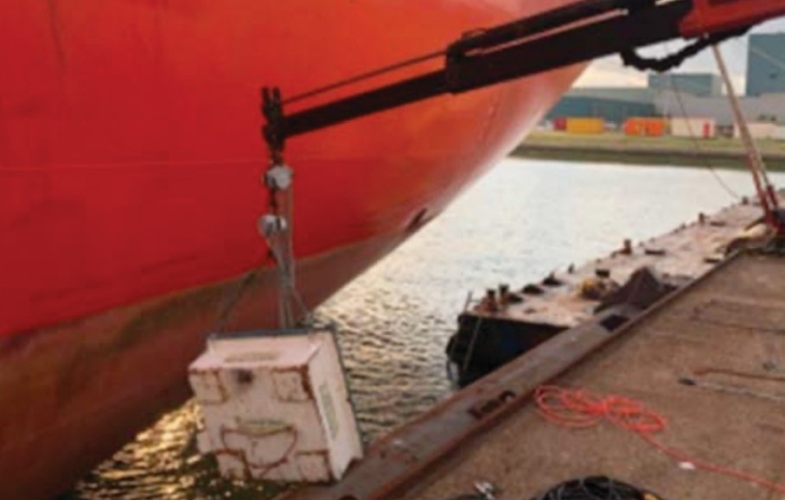Crew should supervise external contractors when performing tasks on board a ship. The Nautical Institute gives this warning in its latest Mars Report, in which welding heat caused by a repair team resulted in a cofferdam losing watertight integrity and the engine room taking on water.
The Nautical Institute gathers reports of maritime accidents and near-misses. It then publishes these so-called Mars Reports (anonymously) to prevent other accidents from happening. A summary of this incident:
A vessel was moored at a shipyard to repair an exhaust gas scrubber overboard discharge pipe. As part of the repair process, divers installed a cofferdam on the outside of the ship’s hull.
Once the cofferdam had been installed, repairs started with the removal of the pipe inside the engine room. The new pipe was then fitted and partially welded to the hull. The first welding pass covered approximately fifty per cent of the pipe circumference. The inboard flange on the new overboard pipe was tag-welded. As a new work crew came in a leak was discovered. Immediately the divers, still in the water, were informed and they attempted to close the leak at the cofferdam.
Also read: OS 35 remains stable with water ingress engine room stopped, beach cleanups underway
The water in the engine room bilges was rising quickly, so the general alarm was raised. About fifteen minutes later, for the safety of the vessel and its crew, the master decided to start pumping the sea water overboard through the emergency bilge arrangement. It was also decided to quickly reduce the ship’s draught aft by pumping ballast directly overboard, bypassing the ballast water treatment plant.
Local and national authorities, the company emergency response team, insurance and flag state were promptly informed. After four hours, the emergency was under control and definitive repairs were carried out as per the plan.
Investigation findings
The investigation revealed that heat from welding could have caused deformation of the ship’s side plating, causing the cofferdam to lose watertight integrity. Also, the flat cofferdam did not form a perfect seal with the hull due to a slight curvature at that location.
Also read: Scrubber failure floods engine room
Advice from The Nautical Institute
- The task was executed by an external team, resulting in limited crew participation. Close coordination and supervision of contractors by crew provides an added layer of safety.
- In an emergency, pumping bilge water and ballast directly overboard is allowed within MARPOL and the International Convention for the Control and Management of Ships’ Ballast Water and Sediments.
Mars Reports
This accident was covered in the Mars Reports, originally published as Mars 202228, that are part of Report Number 357. Selections of Mars Reports are also published in the SWZ|Maritime magazine. The Nautical Institute compiles these reports to help prevent maritime accidents. That is why they are also published (in full) on SWZ|Maritime’s website.
More reports are needed to keep the scheme interesting and informative. All reports are read only by the Mars coordinator and are treated in the strictest confidence. To submit a report, please use the Mars report form.
Picture: Cofferdam being positioned.
Also read: Poor maintenance and ‘commercial pressure’ caused Finlandia Seaways engine room fire








